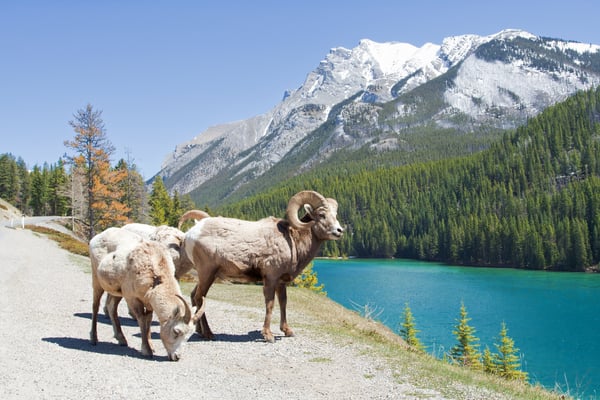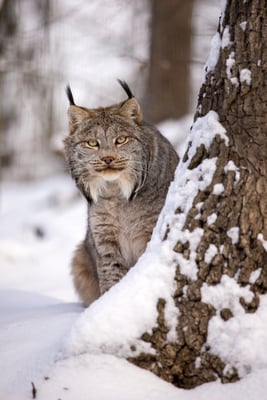- Do you tend to run with a pack or do you prefer solitude?
- Is your diet more plant based or do you prefer meat?
- Is your diet more plant based or do you prefer meat?
- Do you prefer investing in the home you are in or traveling around?
- You are a wolf!
- You are a moose!
- Would you describe yourself as small and feisty or large and powerful?
- You are a beaver!
- You are a bighorn sheep!
- You are a short-tailed weasel!
- You are a lynx!
Wolf: Wolves are social carnivores that exhibit all the traits of a complex and intelligent creature. Wolves are playful, committed to family, and able to communicate a wide range of emotions. They take care of the young, old, and sick members of their family and mate for life. Creating balance in their ecosystem and providing food for many other creatures.
Moose: Moose are solitary herbivores who only spend time with other moose when mating or the one year where the mother cares for their calf. The mighty moose is curious and has little to fear in life while it trots around their riparian habitat. They are highly territorial and are determined to protect their young and their home, making them highly aggressive to anyone who tries to interfere.
Beaver: These ecosystem engineers create habitat for many other creatures to thrive! These social herbivores make for fantastic swimmers and are most active at dawn and dust. While regarded as relatively peaceful animals, they are highly protective of their home and family.

Bighorn Sheep: The bighorn sheep are one of Colorado’s most impressive climbers. This animal prefers to spend their days seeking peaks, soaking up the sun, and going for long hikes. Ladies tend together year round while the men live in groups of bachelors until mating season. Male bighorn sheep become aggressive during mating season and put those huge horns to work to impress a female and establish dominance within the group.
Short-Tailed Weasel: Fierce and flamboyant animals are the smallest carnivores in Colorado. If taking down prey 3x their size wasn't impressive enough, they dance they use to disorient their prey definitely is. Weasels are territorial and spend most of their day moving about their area to hunt down their next meal. In the winter, they shed their brown coats to camouflage with their surroundings.
Lynx: The large and powerful lynx is a highly solitary cat. They enjoy a simple and repetitive diet and are most active at night. Lynx were built to thrive in the frigid mountains and are a rare sighting.
No matter what animal personality you align with, you play an important role in your community just like these animals play a vital role in our ecosystem.
Tayler Branson is the Lead Naturalist at Walking Mountains Science Center and she enjoys taking personality quizzes to aid in her own self reflection.







